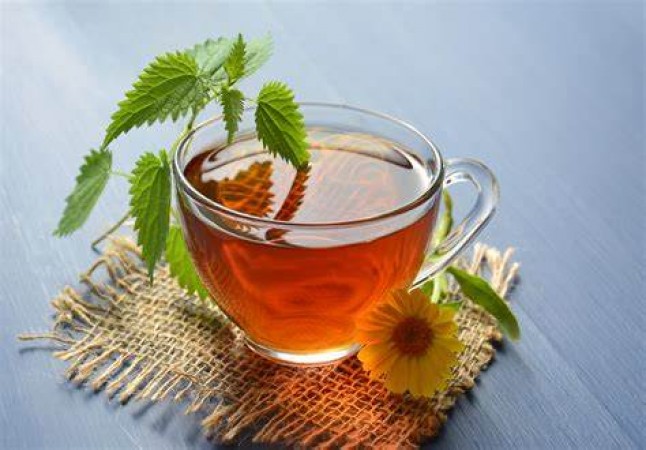
In today's fast-paced world, people are increasingly seeking natural remedies and healthier lifestyle choices. One such trend gaining popularity is brewing herbal and medicinal teas from rare plants. These teas not only offer unique flavors but also provide various health benefits. In this article, we will explore the art of brewing your own herbal and medicinal teas using rare plants. From selecting the right plants to drying and brewing, we will cover everything you need to know to create delightful and nourishing beverages.
Understanding Herbal and Medicinal Teas
Herbal teas have been consumed for centuries for their aromatic flavors and therapeutic properties. Unlike traditional teas derived from the Camellia sinensis plant, herbal teas are made from various dried leaves, flowers, roots, and seeds. On the other hand, medicinal teas are herbal concoctions specifically formulated to address certain health concerns. Both types of teas offer numerous health benefits, ranging from improved digestion and relaxation to enhanced immunity and relief from minor ailments.
Exploring Rare Plants for Tea Brewing
The allure of rare plants lies in their scarcity and unique characteristics. These plants are often found in remote locations and possess distinctive flavors and medicinal properties. However, it's essential to approach the sourcing of rare plants responsibly, ensuring their sustainable cultivation and harvesting to protect biodiversity and the ecosystems they inhabit.
Selecting the Perfect Plants for Your Tea Garden
Creating your tea garden allows you to cultivate a variety of rare plants suited to your local climate and growing conditions. Researching and selecting the right plants is crucial for a successful harvest. Consider factors such as sunlight, soil, and temperature to ensure optimal growth and yield.
Cultivating Rare Plants at Home
Cultivating rare plants can be a rewarding experience. Whether you have a backyard garden or a few pots on a balcony, understanding proper planting and care techniques is essential. Regular maintenance and diligent nurturing will yield healthy and vibrant plants ready for harvest.
Drying and Storing Rare Plant Leaves
The process of drying plant leaves is crucial to preserve their flavor and medicinal properties. Proper drying techniques prevent mold growth and maintain the plant's integrity. Once dried, storing the leaves correctly ensures their freshness and potency for an extended period.
The Art of Tea Brewing
Brewing herbal and medicinal teas requires a fundamental understanding of water temperature, steeping time, and the right equipment. Taking the time to master these factors will lead to a satisfying cup of tea with robust flavors and healthful benefits.
Creating Unique Herbal Tea Blends
Experimentation is the key to crafting one-of-a-kind tea blends. Mixing different plants and adding fruits and spices can elevate the taste and aroma of your teas. Unleash your creativity and discover delightful combinations.
The Medicinal Aspect of Rare Plant Teas
Herbal teas have been used for centuries in traditional medicine to treat various ailments. While many people embrace these teas as natural remedies, it's essential to consult with herbalists or healthcare professionals to ensure safe and effective usage, especially for specific health conditions.
Incorporating Tea Rituals into Your Daily Life
Making tea can become a mindful ritual, allowing you to relax, meditate, and savor the present moment. Additionally, sharing tea with friends and family can be a delightful social experience that fosters connections and meaningful conversations.
The Benefits of Going DIY
Brewing your own herbal and medicinal teas not only offers a sense of accomplishment but also allows you to tailor the teas to your preferences. Moreover, it can be a cost-effective way to enjoy premium teas without breaking the bank.
Safety Precautions
While most herbal teas are safe, it's essential to be aware of potential allergens and toxic plants. Educate yourself on the plants you are using and their potential side effects. If you have any doubts, consult with a knowledgeable expert.
Tea Etiquette and Serving Suggestions
Enjoying tea goes beyond the taste; it's also about the presentation and hospitality. Learning the basics of tea etiquette and pairing teas with complementary foods can elevate the entire tea-drinking experience.
The Green Thumb Community: Joining Tea Enthusiasts
Tea enthusiasts form a vibrant community, both online and offline. Engaging with like-minded individuals through forums, social media groups, and tea swaps can enrich your tea journey and provide a platform for exchanging knowledge and experiences.
Sustainable Practices and Conservation
As a tea enthusiast, it's essential to support sustainable practices and conservation efforts. By appreciating and responsibly sourcing rare plants, you contribute to the preservation of botanical diversity and ecological balance.
Brewing your own herbal and medicinal teas from rare plants is a rewarding journey that combines creativity, sustainability, and a quest for well-being. As you delve into the world of teas, remember to stay curious, experiment fearlessly, and appreciate the wonders of nature in every cup.
How to Start a Unique Underground Supper Club for Food Enthusiasts
How to Make Your Own Plant-Based Charcuterie and Cheese Board
Deliciously Nutritious: Elevate Your Sandwich Game with Healthier Choices